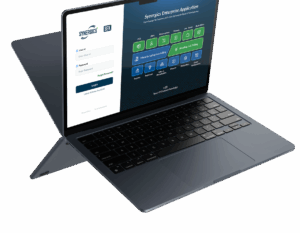As a small business owner, understanding tax write-offs is essential for maximizing profits and minimizing tax liabilities. The more you know about what you can deduct, the more you can save. This comprehensive guide will delve into various small business tax write-offs, explaining what they are, how they work, and how you can take advantage of them. By the end of this article, you’ll have a clearer understanding of the tax write-offs available to you and how to use them to your advantage.
What Are Tax Write-Offs?
Tax write-offs (also known as tax deductions) are expenses that businesses can subtract from their taxable income. This reduces the amount of income that is subject to tax, ultimately lowering your tax bill. Small business tax write-offs can encompass a wide range of business expenses, from office supplies to vehicle costs, and can be crucial in reducing the overall tax burden on your business.
Why Are Tax Write-Offs Important?
For small business owners, managing expenses is a key part of ensuring profitability. Tax write-offs allow you to reduce the amount of income that is taxed, effectively lowering the overall amount of tax you owe. By taking full advantage of the available small business tax write-offs, you can reinvest more money back into your business, helping it grow and thrive.
Common Small Business Tax Write-Offs
There are numerous small business tax write-offs available, and knowing which ones apply to your business can make a significant difference in your tax situation. Below are some of the most common tax write-offs that small businesses can claim.
1. Home Office Deduction
If you operate your business from home, you may be eligible for the home office deduction. This deduction allows you to write off a portion of your home expenses, such as mortgage interest, rent, utilities, insurance, and repairs, that are attributable to the space used for business purposes. To qualify, the area must be used exclusively and regularly for your business.
Calculating the Home Office Deduction: There are two methods to calculate the home office deduction:
- Simplified Method: This allows you to deduct $5 per square foot of your home office, up to 300 square feet, for a maximum deduction of $1,500.
- Regular Method: This involves calculating the actual expenses of your home office by determining the percentage of your home that is used for business and applying that percentage to your total home-related expenses.
2. Vehicle Expenses
If you use your car for business purposes, you can deduct the related expenses. This includes gas, maintenance, repairs, insurance, and even depreciation. There are two methods to claim vehicle expenses:
- Standard Mileage Rate: Deduct a fixed amount per mile driven for business purposes. For 2023, the rate is 65.5 cents per mile.
- Actual Expense Method: Deduct the actual costs associated with using your vehicle for business, such as fuel, maintenance, insurance, and depreciation.
Keep in mind that if you use your vehicle for both personal and business purposes, you can only deduct the portion used for business.
3. Supplies and Equipment
Business supplies and equipment are fully deductible as small business tax write-offs. This includes items like office supplies, computers, software, and tools necessary for your business operations. For larger purchases, such as machinery or vehicles, you can take advantage of Section 179 of the tax code, which allows you to deduct the full purchase price of qualifying equipment in the year it is purchased, rather than depreciating it over several years.
4. Employee Salaries and Benefits
If you have employees, their salaries, wages, and benefits are fully deductible as business expenses. This includes health insurance premiums, retirement contributions, and other employee-related costs. Even if you are a sole proprietor and pay yourself a salary, this expense can be deductible under certain conditions.
5. Rent and Lease Payments
Rent or lease payments for your business property are deductible as business expenses. This applies to office space, retail locations, and even equipment rentals. If you lease a car for business use, you can also deduct the lease payments as a business expense.
6. Utilities and Internet
Utilities such as electricity, water, gas, and garbage collection are necessary expenses for running a business and are therefore deductible. Internet and phone service used for business purposes are also considered small business tax write-offs. If you work from home, a portion of your utility and internet expenses can be included in your home office deduction.
7. Travel Expenses
Business travel expenses are fully deductible, provided they are directly related to your business operations. This includes transportation (airfare, train tickets, car rentals), lodging, meals (subject to a 50% limit), and other related expenses like parking and tolls. The IRS requires that the travel be necessary for your business and not for personal purposes.
8. Meals and Entertainment
While the deduction for meals and entertainment has been reduced in recent years, you can still deduct 50% of qualifying meal expenses. This includes meals with clients, business lunches, and meals during business travel. Entertainment expenses are generally not deductible, but if a meal is part of an entertainment event and you purchase the meal separately from the entertainment, you can still deduct 50% of the meal cost.
9. Marketing and Advertising
Marketing and advertising expenses are crucial for attracting customers and growing your business. These expenses are fully deductible as business expenses. This includes costs associated with online advertising, print ads, business cards, promotional materials, and even the cost of maintaining a website.
10. Legal and Professional Fees
Legal and professional fees, such as those paid to attorneys, accountants, and consultants, are fully deductible if they are necessary for your business. This includes fees for tax preparation, business advice, and services related to contracts and agreements.
Advanced Tax Write-Off Strategies
In addition to the common small business tax write-offs listed above, there are advanced strategies that can further reduce your taxable income. These strategies are more complex and may require the assistance of a tax professional, but they can result in significant tax savings.
1. Depreciation
Depreciation is a method of deducting the cost of a business asset over its useful life. This applies to property and equipment that will be used for more than one year. The IRS allows businesses to take a depreciation deduction each year until the asset is fully depreciated. Accelerated depreciation methods, such as bonus depreciation and Section 179, allow you to deduct a larger portion of the asset’s cost in the year it is purchased.
2. Retirement Contributions
Contributing to a retirement plan not only helps you save for the future but also provides an immediate tax benefit. Contributions to retirement plans such as SEP IRAs, SIMPLE IRAs, and 401(k) plans are tax-deductible. Additionally, contributions made by your business to employees’ retirement accounts are also deductible.
3. Health Savings Accounts (HSAs)
If you have a high-deductible health plan (HDHP), you can contribute to a Health Savings Account (HSA) and deduct those contributions from your taxable income. HSAs offer a triple tax benefit: contributions are tax-deductible, earnings grow tax-free, and withdrawals for qualified medical expenses are tax-free.
4. Charitable Contributions
Charitable contributions made by your business to qualified organizations are tax-deductible. This includes donations of money, property, or services. Be sure to keep detailed records of your contributions and obtain receipts for donations over $250.
How to Maximize Your Tax Write-Offs
Maximizing your small business tax write-offs requires careful planning and record-keeping. Here are some tips to help you get the most out of your deductions:
- Keep Accurate Records: Maintain detailed records of all your business expenses. This includes receipts, invoices, bank statements, and any other documentation that supports your deductions.
- Separate Business and Personal Expenses: It’s important to keep your business and personal expenses separate. This will make it easier to track your deductions and avoid issues with the IRS.
- Work with a Tax Professional: A tax professional can help you identify all the tax write-offs available to your business and ensure that you’re taking full advantage of them. They can also help you navigate more complex deductions and ensure that your tax return is accurate and complete.
- Plan Ahead: Tax planning should be an ongoing process throughout the year. By planning ahead, you can make strategic decisions that will maximize your deductions and minimize your tax liability.
Common Mistakes to Avoid
While small business tax write-offs can provide significant tax savings, it’s important to avoid common mistakes that could lead to issues with the IRS or missed opportunities.
1. Overestimating Deductions
It’s essential to only claim deductions that you’re entitled to. Overestimating deductions or claiming personal expenses as business expenses can lead to audits, penalties, and interest charges.
2. Forgetting to Deduct Eligible Expenses
On the other hand, many small business owners miss out on deductions because they aren’t aware of all the expenses they can deduct. Keep a thorough record of all your expenses and consult with a tax professional to ensure you’re not leaving money on the table.
3. Not Keeping Proper Documentation
The IRS requires proper documentation for all deductions claimed. Failing to keep detailed records of your expenses can result in denied deductions and potential penalties.
Conclusion
Understanding and utilizing small business tax write-offs is crucial for minimizing your tax liability and keeping more of your hard-earned money in your business. From common deductions like home office expenses and vehicle costs to more advanced strategies like
depreciation and retirement contributions, the key to maximizing your tax savings lies in careful planning and diligent record-keeping.
Working with a tax professional can help ensure that you’re taking full advantage of every available deduction and avoiding common pitfalls. By staying informed and proactive about your small business tax write-offs, you can significantly reduce your tax burden, freeing up more resources to reinvest in your business and drive its growth.
In summary, small business tax write-offs are a powerful tool for enhancing your business’s financial health. By understanding the various deductions available and how to apply them, you can optimize your tax situation and ensure that you’re not paying more than you owe. Keep accurate records, plan ahead, and seek professional advice to make the most of your tax write-offs and keep your business on a path to success.












